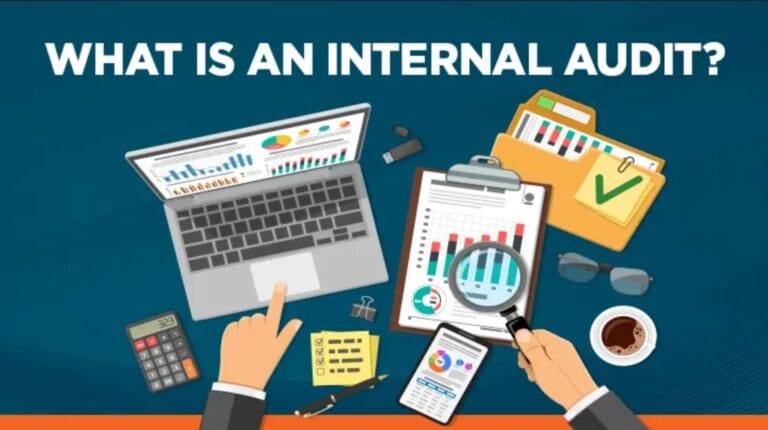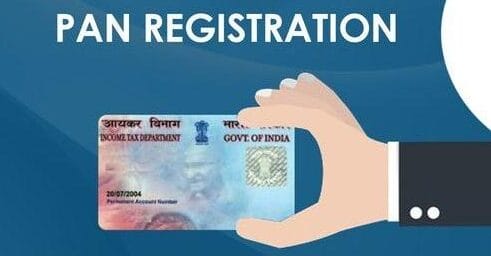Under the Income Tax Act, 1961 in India, a tax audit refers to an examination of the taxpayer’s accounts, financial statements, and other relevant documents to ensure compliance with the provisions of the Income Tax Act. It is mandated for certain categories of taxpayers who exceed specified thresholds or engage in specific business activities. Here’s a detailed overview of tax audit under the Income Tax Act:
Applicability of Tax Audit
- Businesses and Professions: Tax audit is mandatory for individuals, Hindu Undivided Families (HUFs), partnerships, limited liability partnerships (LLPs), companies, and other entities engaged in business or profession if their total turnover or gross receipts exceed the prescribed threshold limits.
- Professionals: Professionals such as doctors, lawyers, architects, etc., are required to undergo a tax audit if their gross receipts exceed the specified limit.
- Presumptive Taxation Scheme: Taxpayers opting for presumptive taxation under sections 44AD, 44ADA, or 44AE of the Income Tax Act must undergo a tax audit if they declare income lower than the deemed profit or gains computed under these sections.
Threshold Limits for Tax Audit
- Businesses: Required if turnover exceeds Rs. 1 crore in a financial year.
- Professionals: Required if gross receipts exceed Rs. 50 lakhs in a financial year.
Objectives of Tax Audit
- Verification of Compliance: Ensure accuracy and correctness of financial statements and tax returns filed by the taxpayer.
- Disclosure of Income: Verify the income declared and assess whether it is in accordance with the provisions of the Income Tax Act.
- Identification of Tax Liabilities: Determine tax liabilities, deductions, exemptions, and credits applicable to the taxpayer.
- Statutory Compliance: Ensure compliance with reporting requirements, maintenance of books of accounts, and other regulatory provisions under the Income Tax Act.
Role of Chartered Accountants (CAs)
- Tax audits under the Income Tax Act are conducted by CAs who are authorized to practice in India. They examine the books of accounts, financial statements, and relevant documents of the taxpayer to express an opinion on the correctness and completeness of the information provided.
Audit Report and Documentation
- Form 3CD: Tax audit report is prepared in Form 3CD, which is prescribed under the Income Tax Rules, containing details such as:
- Particulars of the taxpayer and the audit conducted.
- Details of books of accounts and financial statements examined.
- Information on compliance with tax laws, accounting standards, and other regulatory requirements.
- Disclosure of any tax adjustments, disallowances, or qualifications observed during the audit.
Consequences of Non-Compliance
- Penalties: Failure to comply with the provisions of tax audit may attract penalties under section 271B of the Income Tax Act. The penalty is a sum equal to 0.5% of the turnover or gross receipts, subject to a maximum penalty of Rs. 1,50,000.
- Interest: Additional interest may be levied under sections 234A, 234B, and 234C for late filing of tax returns or payment of taxes.
Tax audit under the Income Tax Act is a crucial compliance requirement aimed at ensuring transparency, accuracy, and fairness in tax reporting by businesses, professionals, and other entities. By conducting tax audits, tax authorities and taxpayers can uphold the integrity of the tax system, prevent tax evasion, and promote voluntary compliance. It is essential for taxpayers to maintain proper books of accounts, comply with audit requirements, and engage with qualified professionals to navigate the complexities of tax laws effectively.
At Ujjwal Gupta & Co
We, at Ujjwal Gupta & Co, are dedicated to delivering personalized, high-quality solutions tailored to meet your financial and business needs. With our team of professionals and a client-first approach, we ensure that every challenge is met with expert guidance and strategic insight.
We are dedicated to ensuring your business’s success by providing best service practice available in the industry and that too at a cost effective pricing. Our team of experts is excited to work with you and provide the support you need to thrive in the Indian business landscape.
Our only motive is to create Value for Our Clients and accordingly, have a Client Value System at our Office.
So, let us help you navigate the complexities of finance and compliance, empowering you to focus on what matters most — growing your business. Get in touch today, and take the first step towards financial peace of mind.
A tax audit is an examination and review of the books of accounts of a business or profession to ensure they comply with the provisions of the Income Tax Act, 1961. The primary objective of a tax audit is to verify the accuracy of income tax returns and ensure that taxpayers are following the income tax laws and regulations.
As per Section 44AB of the Income Tax Act, a tax audit is mandatory for:
- Business entities with gross receipts or turnover exceeding ₹1 crore in a financial year (₹10 crore for businesses that opt for digital transactions only).
- Professionals with gross receipts exceeding ₹50 lakh in a financial year.
- Taxpayers opting for presumptive taxation under Section 44AD, 44ADA, or 44AE but declaring income lower than the prescribed limits.
The objective of a tax audit is to:
- Ensure the accuracy of income tax returns.
- Verify the correctness of financial statements and compliance with tax laws.
- Facilitate the filing of accurate tax returns by preventing tax evasion.
- Report discrepancies, if any, between the books of accounts and the returns filed.
- Ensure that proper records are maintained and various tax-related provisions are complied with.
A tax audit can only be conducted by a Chartered Accountant (CA) who is in practice and registered with the Institute of Chartered Accountants of India (ICAI). If the audit is conducted by a firm, the firm must be authorized to perform such audits.
The due date for filing the tax audit report is generally the same as the deadline for filing the income tax return, which is 30th September of the relevant assessment year. However, this date can be extended by the government, depending on the circumstances.
A tax audit report is filed using:
- Form 3CA (for taxpayers who are required by other laws to get their accounts audited, such as companies), along with Form 3CD, or
- Form 3CB (for taxpayers who are not required by any other law to get an audit done), along with Form 3CD.
Form 3CD is a detailed statement of particulars that includes various tax compliance details, such as deductions, expenses, and payments subject to tax deductions at source (TDS).
If a taxpayer is required to get a tax audit done but fails to do so or does not file the audit report by the due date, the following consequences may arise:
- Penalty under Section 271B: A penalty of 0.5% of turnover or gross receipts, subject to a maximum penalty of ₹1,50,000.
- In certain cases, the taxpayer may lose the benefit of presumptive taxation if they are opting for it.
The tax audit report (Form 3CD) includes detailed information such as:
- Particulars of loans, advances, and interest payments.
- Details of depreciation, deductions, and allowances claimed.
- Compliance with TDS (Tax Deducted at Source) provisions.
- Information on related party transactions.
- Reporting on disallowable expenses under various sections of the Income Tax Act.
- Verification of cash transactions and compliance with limits on cash expenses or receipts.
Yes, a taxpayer can change their tax auditor. There are no restrictions under the Income Tax Act regarding the change of auditors. However, if the taxpayer changes their auditor, they should notify the tax authorities and ensure proper handover of the audit work.
The key benefits of conducting a tax audit include:
- Avoidance of penalties for non-compliance with income tax regulations.
- Identification of any errors or misreporting in the books of accounts.
- Ensuring proper maintenance of accounts as per tax laws.
- Facilitating a smoother and more accurate income tax filing process.
- Preventing tax evasion and ensuring proper tax liability is reported.
- Serving as an assurance for financial credibility, especially when dealing with stakeholders like banks or investors.
Why Choose UGC?

Client Centric Approach
Client is the key driver of our service offerings. Our approach to service offerings is based on a client centric and customized approach. Our specialized teams are a mix of technical and industry experience in order to serve clientele for their specific needs.

Team Work
We have built high performing teams supported by strong work ethic. Our team is a mix of experts, professionals and support staff from technical and varied academic, social and ethnic backgrounds. We believe diversification plays a vital role in motivating the team.

Quick Turnaround
We always endeavour for a quick turnaround time to serve our clientele. We are supported by an experienced and client focussed support teams to offer timely services to our clientele. In case of any business exigencies and time sensitive service requirements, you can always count on us.

Open Communications
We believe that open communication is the core principle in order to demonstrate trust, build long lasting and valuable relationships with clientele. We are committed to ensuring transparency in communication, service offerings and delivery. We provide professional services to our clients.

Client Value System
We value for the Client time and thus, we offer services that are value for money. Quality professional services are provided to our clients, so that they are able to achieve their desired results. We are a quality trademark in the industry and thus, our clients count on us always.

Quality in Delivering Work
Our service offerings are driven by quality and reviews at every level. We strive to provide a qualitative and value-added delivery to our clientele. At all times, we endeavour to provide exceptional client service by meeting client expectations and driving client satisfaction.





















